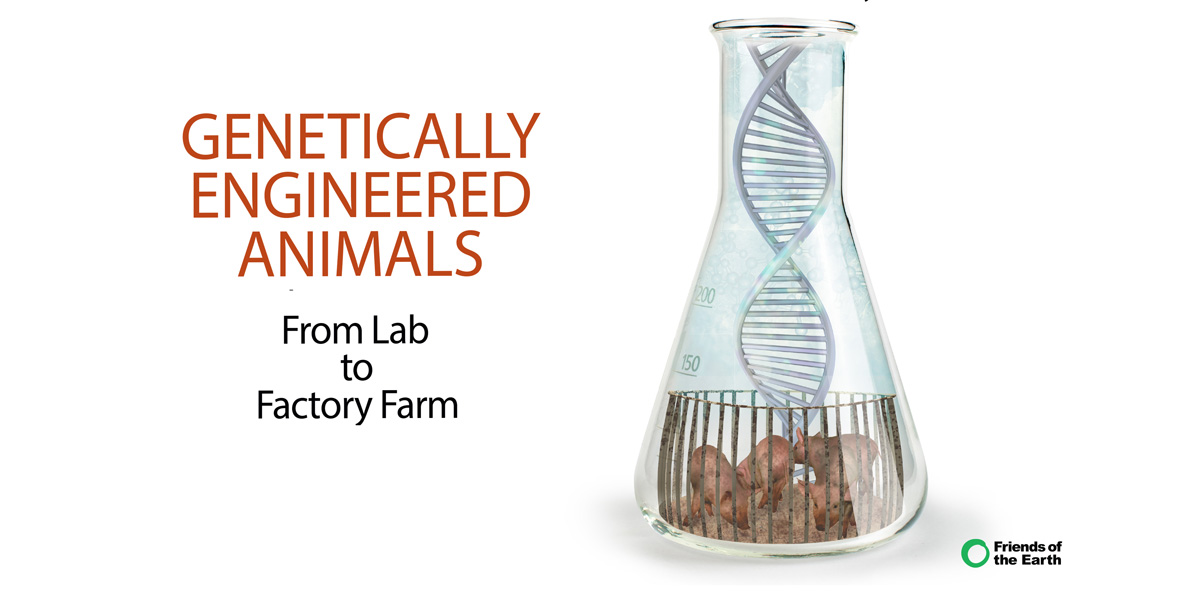Gene-edited animals will intensify factory farming and the climate crisis, could harm human health

Published: October 2, 2019
Category: The Organic & Non-GMO Report Newsletter, GMO 2.0
New report highlights urgent need for safety assessments, oversight
A new report from Friends of the Earth and Logos Environmental reveals that the use of gene editing in farm animals poses risks to human health, the environment and animal welfare. The report comes on the heels of research by the FDA showing that gene-edited hornless cattle have unexpected antibiotic resistant genes, despite researchers’ original claims that they did not contain any genetic errors. This new report sheds light on the unintended consequences of gene editing and considers the implications for U.S. regulations.
Many genetically engineered farm animals are currently in development, funded by private companies or governments and enabled by new gene editing technologies such as CRISPR. Examples include super-muscly cows and pigs, hornless cattle, chickens and pigs made to resist certain diseases, cows with human genes, and other genetic experiments. Production of these gene-edited farm animals is often done with little public awareness or input.
“The scientific evidence shows that gene editing, particularly in animals, is far from ‘precise.’ Instead, it can produce unintended changes to genetic material and disrupt genetic processes. Such effects could have far-reaching consequences for food safety, so these applications will require a rigorous assessment if they are to be used in agriculture,” said co-author Dr. Janet Cotter of Logos Environmental.
The new report compiles evidence from peer-reviewed scientific studies demonstrating research gaps and unknown and unintended consequences of gene editing in animals. For example, published studies have found enlarged tongues in engineered rabbits and extra vertebrae in pigs, as the Wall Street Journal reported in 2018. Recent cell studies linked CRISPR to DNA damage and cancer concerns.
Instead of developing gene-edited animals, the report recommends developing sustainable and ecological animal agriculture systems that support animal welfare, preservation and restoration of biodiversity and public health.
Source: Friends of the Earth
To view original article, visit:




